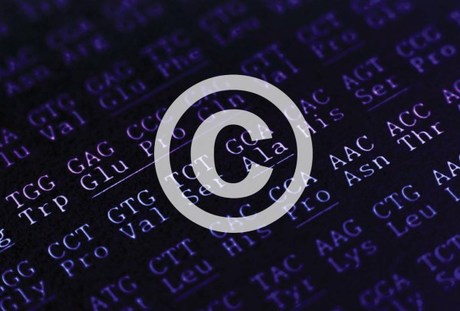Gene patent upheld by Federal Court

The Federal Court has ruled in favour of Myriad Genetics and its patent of mutations in the BRCA1 gene, although some have expressed concern at the result.
The gene patent debate has progressed another step with a landmark ruling from the Federal Court in favour of Myriad Genetics, and its local licensee Genetic Technologies, and its patent of mutations in the BRCA1 gene.
The case was brought by Brisbane woman Yvonne D’Arcy in 2010 along with charity group Cancer Voices Australia.
Myriad Genetics argued that their patent didn’t cover a discovery of something pre-existing in nature but an “artificial state of affairs”, thus qualifying it for patent protection.
According to Dr Tania Obranovich, Partner at Davies Collison Cave, the judgement provides a measure of increased certainty over what qualifies as patentable subject matter.
“This is a good decision, and a well-reasoned decision,” she said. “The law, as it stands, is that for material to be patentable, it has to be an artificially created state of affairs and have economic application.
“The question has always been what is it that amounts to an artificially created state of affairs.”
In the judgement, Justice John Nicholas pointed out that nucleic acid sequences do not exist outside their natural environment with a cell, and isolated nucleic acid sequences - such as those covered by Myriad Genetics’ patent - do not exist within the cell.
As such, the isolated nucleic acid sequences do qualify as an artificially created state of affairs and thus qualify for patent protection.
However, as Obranovich stresses, this means they only pass the first threshold for patentability; just because they are patentable subject matter doesn’t mean they will be awarded patent protection if they fail to be novel or inventive.
Some academics and members of the healthcare industry, however, have seen this judgement as being a radical decision that could change the way patents are handled in Australia.
“This ruling means that anything that is artificial is now patentable subject matter,” said Dr Luigi Palombi, patent lawyer and visitor at the Centre for Governance and Knowledge and Development at the Australian National University.
“It doesn’t matter where the biological material has actually come from. Corporations are now able to patent any genes connected to a disease or trait - like hair colour. It’s a fairly radical decision.
“It turns patent law on its head. Patents were originally created for something which someone had invented. No matter how important it is to identify a gene linked to a disease, it’s still not something that Myriad or anyone else has invented. It’s now a matter for politicians to get together and correct this through legislation.”
Professor Ian Olver, CEO of Cancer Council Australia, also expressed concern over the implications of the judgement.
“Discovering and isolating genetic materials is not inventive, yet the current law gives licence to biotechnology companies to claim ownership of naturally occurring substances.
“Today’s outcome shows that the law must be changed to protect the community from gene monopolies,” he said.
The Royal College of Pathologists of Australasia (RCPA) also expressed disappointment at the Federal Court’s decision on the grounds that the BRCA1 mutation is a naturally occurring discovery and not an invention, thus should not be patentable.
Professor Yee Khong, President of RCPA, warned that the ruling could have a negative impact on healthcare in Australia.
“Gene patenting has the potential to directly affect the healthcare and medical research industry, and may have an adverse impact on medical testing,” he said.
“Therefore, the battle is not over. We need a system that supports creativity and investment in research and healthcare, while ensuring that the ability to make a diagnosis is not restrained.”
However, Dr Obranovich stresses that this decision is unlikely to have a negative impact on the research or medical industries.
“In practice, this decision does not change anything. The status quo in Australia and overseas has always been that isolated nucleic acid sequences and proteins are patentable. In that regard, nothing has changed,” she said.
“To date there has not been a health crisis. Research continues to be performed and technology is brought to market from the lab to the patient. I do not see any reason why that would change.”
DDX53 gene linked to autism spectrum disorder
While DDX53, located on the X chromosome, is known to play a role in brain development...
ADHD drug shows promise for treating meth addiction
A prescription medication used to treat attention deficit hyperactivity disorder (ADHD) could be...
Quitting smoking increases life expectancy even for seniors
Although the benefits of quitting smoking diminish with age, there are still substantial gains...




